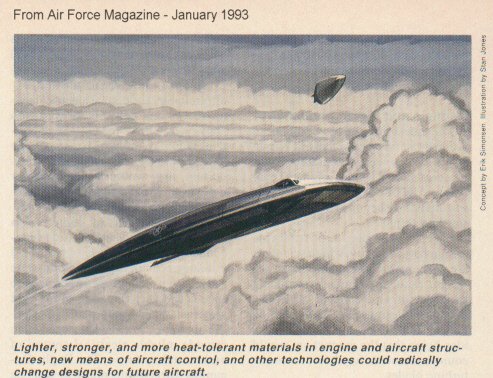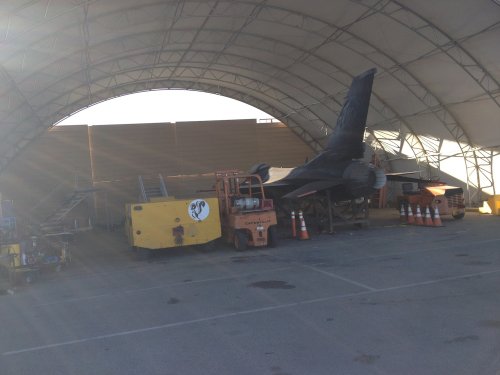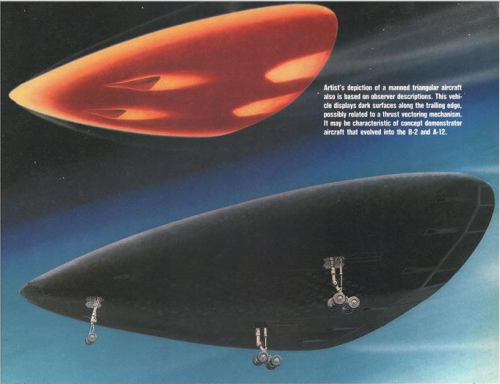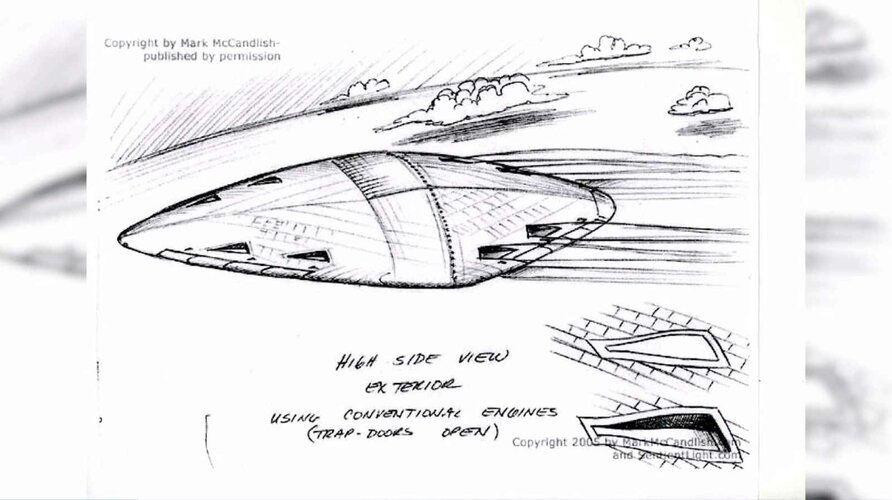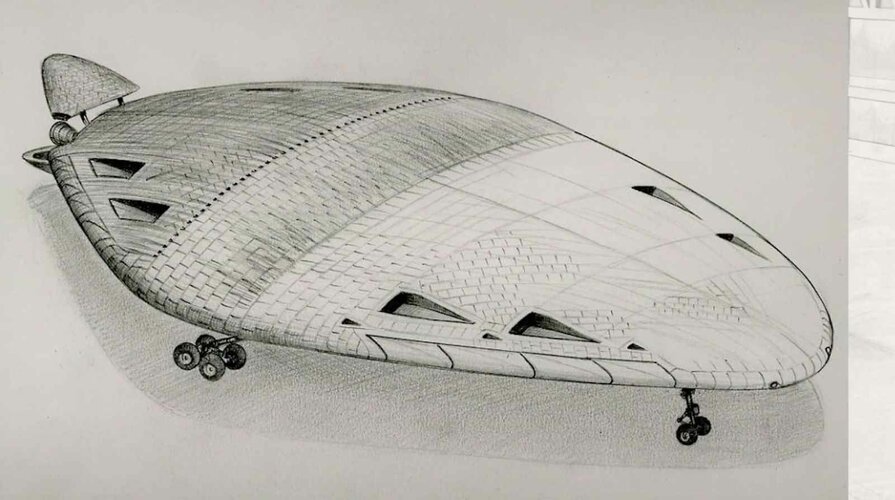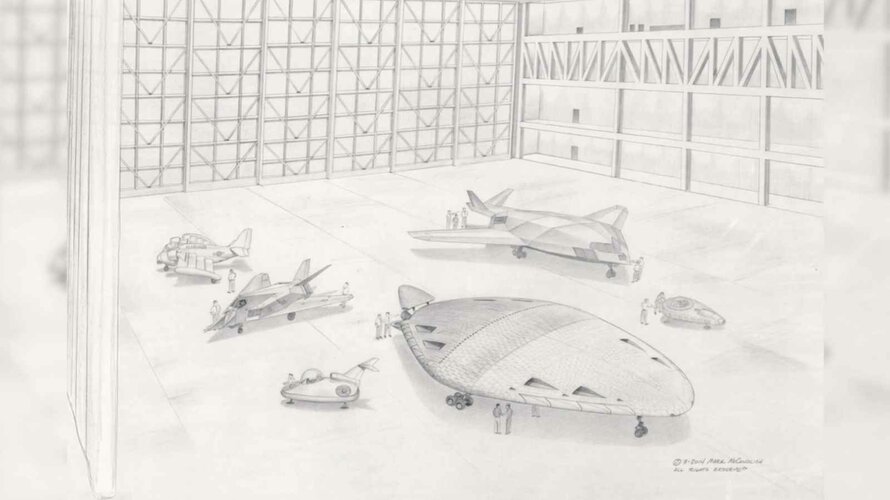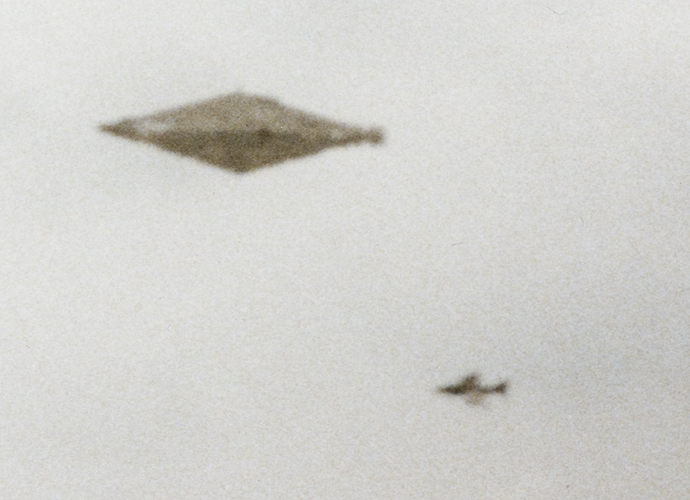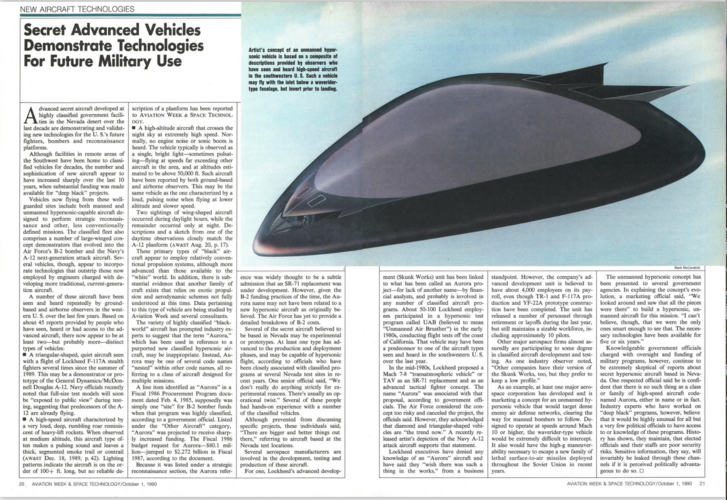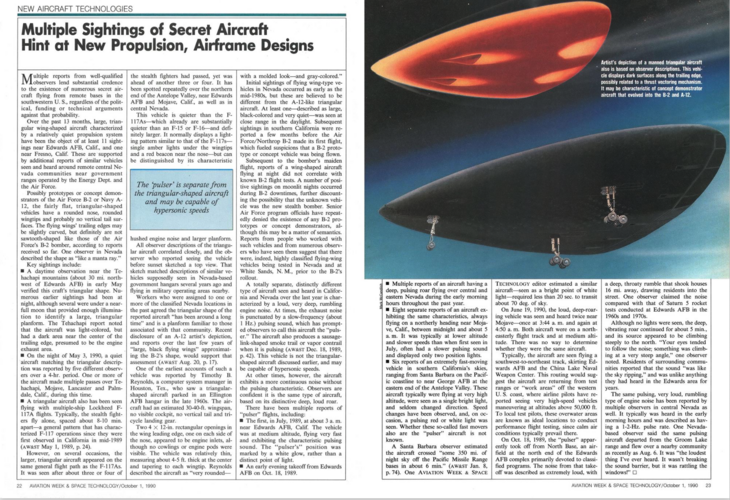Captures from Discovery Channel's The Black Aircraft documentary
CHRIS GIBSON'S AURORA SIGHTING
By Simon Gray
In August 1989, Chris Gibson, a Scottish oil-exploration engineer and, at the time, a member of the British Royal Observer Corps (ROC), was working on the oil rig Galveston Key in the North Sea when he noticed an aircraft in the shape of a pure isoceles triangle refuelling from a KC-135 Stratotanker alongside two F-111s.
The unknown aircraft, cruising in a formation northward through Air-to-Air Refuelling Area (AARA) 6A, is what people have come to believe, is the mysterious Aurora hypersonic spyplane. Another possible aircraft, which could have been seen over the North Sea however, is Northrop's A-17 stealth attack plane.
Chris Gibson's observation of the mysterious flying triangle is often cited by UFO researchers when the subject of Aurora rises. Below, Chris Gibson explains precisely what happened, as well as giving an insight into himself.
I welcome any questions on my North Sea sighting, as I am of the opinion that too much is taken at face value in the black aircraft snark hunt. I think that the snark hunt has degenerated into an exercise in regurgitating the same old stories with little or no new research being done.
A bit about me. I work as a drilling technologist for a major oil field service company. I hold an Honours degree in geology, with some engineering, geophysics and chemistry thrown in. I also did a post graduate course in systems analysis, I was a member of the Royal Observers Corps for 13 years and was a member of the ROC's aicraft recognition team for 12 of those years. In this field I was considered to be an expert and produced an aircraft recognition manual for the ROC. Some will obviously know the sighting story, but I'll fill you in on what happened from my point of view.
I was working in the indefatigable field on the jack-up rig 'Galvestion Key' in August 1989. My colleague, Graeme Winton, went out on deck but returned immediately. He told me to "have a look at this." We went outside and Graeme pointed skywards.
I had been at university with Graeme and he knew of my interest in aircraft. As far as Graeme was concerned it was a formation of aircraft and he reckoned I'd be interested. I looked up, saw the tanker and the F-111s, but was amazed to see the triangle. I am trained in instant recognition, but this triangle had me stopped dead. My first thought was that it was another F-111, but there was no 'gaps', it was too long and it didn't look like one.
My next thought was that it was an F-117, as the highly swept planform of the F-117 had just been made public. Again the triangle was too long and had no gaps. After considering and rejecting a Mirage IV, I was totally out of ideas. Here was an aircraft, flying over head, not too high and not particularly fast. A recognition gift and I was clueless. This was a new experience. Graeme asked me what was going on. I watched as the formation flew overhead and told him that the big one was a KC-135 Stratotanker, the two on the left were F-111s and that I didn't know what the fourth aircraft was.
Graeme said "I though you were an expert?" I said "I am." To which Graeme replied "Some expert."
It was obvious to me that this aircraft was something 'dodgy'. I watched the formation for a minute or two and went back inside with Graeme. At the time I was writing the aircraft recognition manual and had a Danish Luftmelderkorpset Flykendingsbog in my briefcase. This is probably the best aircraft recognition book ever produced. I looked through it, but nothing matched. I then sketched what I had seen and sent this to Peter Edwards, who was a Group Officer in the ROC and was also on the recognition team.
We discussed what to do about it but decided that if it was reported through official channels, it would be at best rubbished, at worst lead to trouble. Having signed the Official Secrets Act I didn't want to jeopardise my position in the recognition team, so I kept my mouth shut. I told other members of the recognition team in the hope that they could shed some light on the subject. On returning home I had a look through my book collection. The only aircraft which came close to matching what I had seen was a Handley Page HP115. It was not one of them. Whether this aircraft was a Aurora is debatable - my background precludes jumping to conclusions based on a single piece of evidence. I wrote to Bill Sweetman (Stealth expert) after being sent an illustration from Janes Defense Weekly which matched what I had seen.
As an aside, I wrote to two other writers who did not reply. Bill reckons it was Aurora; Agenct 'X' reckons it was the FB-119. I don't know what it was. It is the only aircraft I have ever seen that I could not identify. Pete Edwards told Bill Sweetman that if I didn't know what this aircraft was, it isn't in any book. I've been hunting this 'snark' for almost 9 years now and have turned up some interesting stuff, mainly through my own efforts, but also by having looked in the most unusual places. Talking to the people involved is a necessity.
As I said before, I welcome the healthy scepticism, but at least give me the opportunity to state my case.
from "Chris Gibson's Aurora Sighting (1989)" at AboveTopSecret.com
Chris Gibson's Aurora Sighting (1989), page 1

www.abovetopsecret.com

